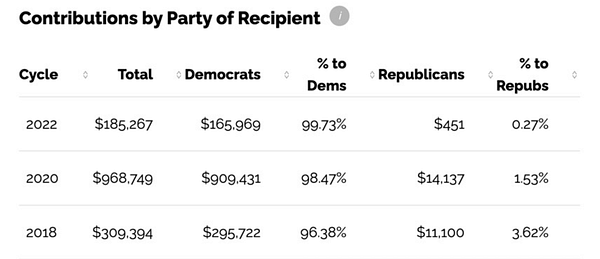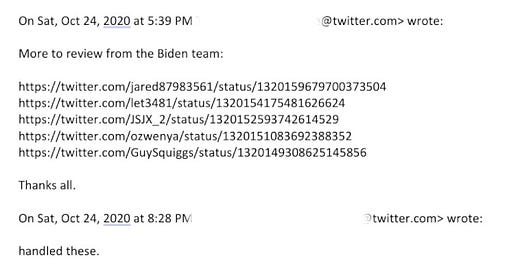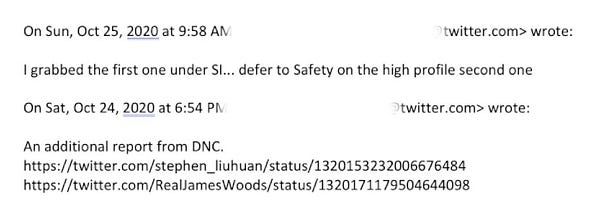Elon Musk reveals Twitter's censorship practices
On Friday, Musk shared Twitter's internal documents with journalist Matt Taibbi.
Whether you personally use Twitter or not, you’ll want to pay attention to what Elon Musk is doing as the new owner of the blue bird app.
Musk has been busy since he officially purchased the company in October: he fired thousands of employees (including the CEO), reinstated previously suspended accounts like Jordan Peterson’s and Donald Trump’s, banned Kanye West for inciting violence, and met with CEO Tim Cook to restore Apple’s business relationship with Twitter.
Musk’s most consequential action so far may be his decision to release thousands of internal documents concerning Twitter’s censorship practices under previous ownership. The first batch of files were shared with journalist and fellow substacker Matt Taibbi on Friday. The documents are from fall 2020, in the lead up to the last U.S. presidential election.
Taibbi shared some of the documents in a Twitter thread. It provides a window into the political biases that influenced one of the most powerful big tech firms in the world. Below are a few highlights that I think are most revealing.
First, Taibbi explains the mechanism by which politicians and political parties could communicate their concerns to Twitter. In one example from October 2020, the Biden campaign sent a list of tweets to an unnamed Twitter employee. That unnamed employee forwarded the tweets to a colleague who then confirms that the request for review was “handled.”


In another example from October 2020, the Democratic National Committee (DNC) flagged two tweets to a Twitter employee. One of those tweets that the DNC was worried about is from Hollywood actor James Woods, perhaps best known for his roles in Salvador and Ghosts of Mississippi (or, for less sophisticated individuals like me, you might know Woods for his appearances on Family Guy).
Importantly, Taibbi notes that Republican Party officials and the Trump campaign could contact Twitter, too. However, he explains that the “system wasn’t balanced.” Twitter staff had “overwhelmingly” more relationships with Democrats than with Republicans, so Democrats had more access to Twitter’s censors.


This dynamic provides context for one of the most controversial moments of the 2020 presidential election, when Twitter censored users from posting an article published by the New York Post about Joe Buden’s son, Hunter Biden, and the contents of Hunter’s missing laptop (more on that story here for those who might be unfamiliar). Taibbi explains Twitter’s response:

And Taibbi documents the incoherence of Twitter’s decision to censor the Hunter Biden laptop story:


Musk has said that additional internal documents have been shared with Taibbi and another substack journalist, Bari Weiss. It appears that the saga will continue and more information will be available soon.
Stay tuned.





I have never used Twitter and never will; I just don't care enough. Now, having said that, Twitter is, for reasons inexplicable to me, seen as influential. I don't understand it but, then, there is no law that I have to understand everything.
This latest release of information - which I have seen covered elsewhere as well - absolutely plays into the narrative that much of the media is biased to leftward oriented politicians and causes. For myself, given what I see in the media, I do believe that narrative but I also recognize that one can find counter narratives in favor of the right oriented side of things. Having said that, it does seem to me that the - please pardon the expression - mainstream media, very much including Twitter is biased in a leftward slant but, once you eliminate Fox News, pretty much the remaining right slant folks are a rag-tag bunch.
So, my conclusion? The "authoritative voices" in the Canada and the US (other than Fox News, of course) are all pretty much left leaning and left biased.